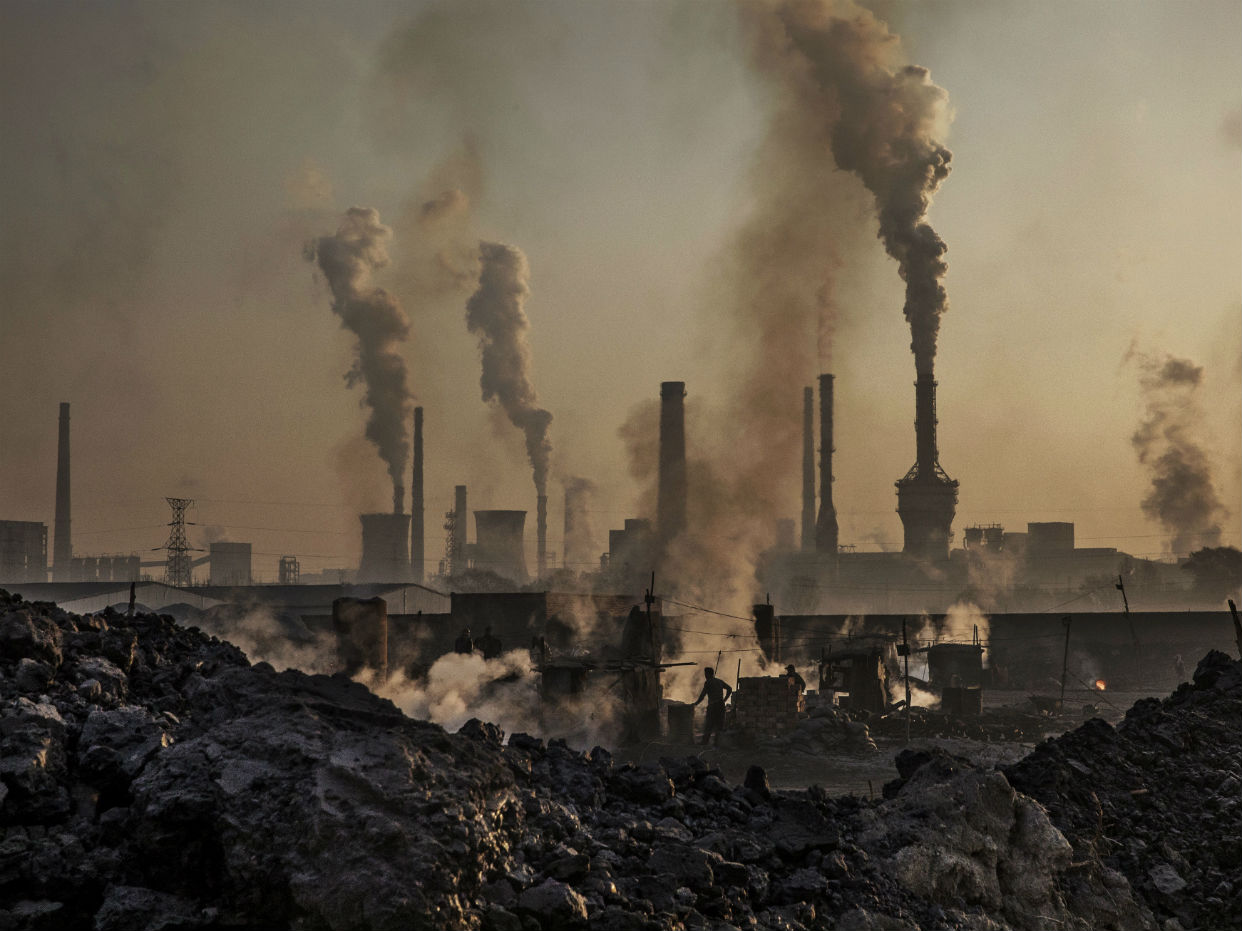1.5C global warming threshold to be passed within a decade
Scientists are ‘alarmed’ by acceleration to ‘hotter, hellish future’

A free daily email with the biggest news stories of the day – and the best features from TheWeek.com
You are now subscribed
Your newsletter sign-up was successful
The world will burn through its remaining carbon budget in less than ten years unless nations significantly reduce greenhouse gas pollution, a new study has found.
The Global Carbon Budget, a yearly assessment of how much the world can afford to emit to stay within its warming targets, found that greenhouse gas pollution will hit a record high this year, due to a 1% increase in carbon dioxide from burning fossil fuels.
To avoid passing critical warming thresholds and triggering catastrophic climate impacts, the planet “can release no more than 380 billion tons of carbon dioxide equivalent over the coming decades – an amount equal to about nine years of current emissions”, the report warned.
The Week
Escape your echo chamber. Get the facts behind the news, plus analysis from multiple perspectives.

Sign up for The Week's Free Newsletters
From our morning news briefing to a weekly Good News Newsletter, get the best of The Week delivered directly to your inbox.
From our morning news briefing to a weekly Good News Newsletter, get the best of The Week delivered directly to your inbox.

Holding warming at 1.5C “represents our best chance at avoiding irreversible changes to the Earth’s climate system and protecting vulnerable groups of people and wildlife”, explained Popular Science.
Beyond 1.5C, “extinctions are forecast to rise steeply, coral diversity will shrink by 90% or more”, said Australia’s ABC News. “Extreme weather events – droughts, floods, cyclones, bushfires – will intensify in parts of the world, sea-level rise will accelerate,” it added. As a result “millions more people will be displaced” and “crossing tipping points leading to ecosystem and ice-sheet collapse will become more likely”.
Yet “even as scientists warn of the world’s dangerous trajectory”, leaders at Cop27 have “advocated for natural gas as a ‘transition fuel’ that would ease the world’s switch from fossil energy to renewables”, said The Washington Post.
It added that “this rhetoric has alarmed scientists and activists” who believe that expanding natural gas production could “harm vulnerable communities and push the planet toward a hotter, hellish future”.
A free daily email with the biggest news stories of the day – and the best features from TheWeek.com
Meanwhile, a “glimmer of hope” comes from emissions produced by the destruction of forests, said The Guardian. These have been “declining slowly over the last two decades”, and “when this decline is taken into account, global carbon emissions have been essentially flat since 2015”.
Chas Newkey-Burden has been part of The Week Digital team for more than a decade and a journalist for 25 years, starting out on the irreverent football weekly 90 Minutes, before moving to lifestyle magazines Loaded and Attitude. He was a columnist for The Big Issue and landed a world exclusive with David Beckham that became the weekly magazine’s bestselling issue. He now writes regularly for The Guardian, The Telegraph, The Independent, Metro, FourFourTwo and the i new site. He is also the author of a number of non-fiction books.
-
 Political cartoons for February 12
Political cartoons for February 12Cartoons Thursday's political cartoons include a Pam Bondi performance, Ghislaine Maxwell on tour, and ICE detention facilities
-
 Arcadia: Tom Stoppard’s ‘masterpiece’ makes a ‘triumphant’ return
Arcadia: Tom Stoppard’s ‘masterpiece’ makes a ‘triumphant’ returnThe Week Recommends Carrie Cracknell’s revival at the Old Vic ‘grips like a thriller’
-
 My Father’s Shadow: a ‘magically nimble’ film
My Father’s Shadow: a ‘magically nimble’ filmThe Week Recommends Akinola Davies Jr’s touching and ‘tender’ tale of two brothers in 1990s Nigeria
-
 Epstein files topple law CEO, roil UK government
Epstein files topple law CEO, roil UK governmentSpeed Read Peter Mandelson, Britain’s former ambassador to the US, is caught up in the scandal
-
 Iran and US prepare to meet after skirmishes
Iran and US prepare to meet after skirmishesSpeed Read The incident comes amid heightened tensions in the Middle East
-
 Israel retrieves final hostage’s body from Gaza
Israel retrieves final hostage’s body from GazaSpeed Read The 24-year-old police officer was killed during the initial Hamas attack
-
 China’s Xi targets top general in growing purge
China’s Xi targets top general in growing purgeSpeed Read Zhang Youxia is being investigated over ‘grave violations’ of the law
-
 Panama and Canada are negotiating over a crucial copper mine
Panama and Canada are negotiating over a crucial copper mineIn the Spotlight Panama is set to make a final decision on the mine this summer
-
 Why Greenland’s natural resources are nearly impossible to mine
Why Greenland’s natural resources are nearly impossible to mineThe Explainer The country’s natural landscape makes the task extremely difficult
-
 Iran cuts internet as protests escalate
Iran cuts internet as protests escalateSpeed Reada Government buildings across the country have been set on fire
-
 US nabs ‘shadow’ tanker claimed by Russia
US nabs ‘shadow’ tanker claimed by RussiaSpeed Read The ship was one of two vessels seized by the US military